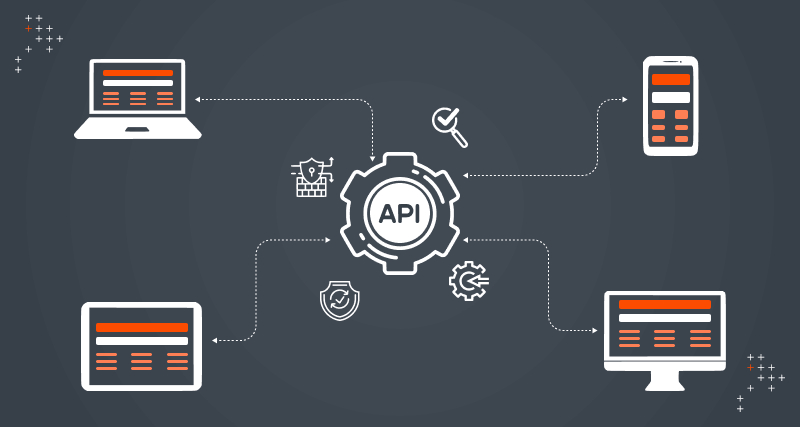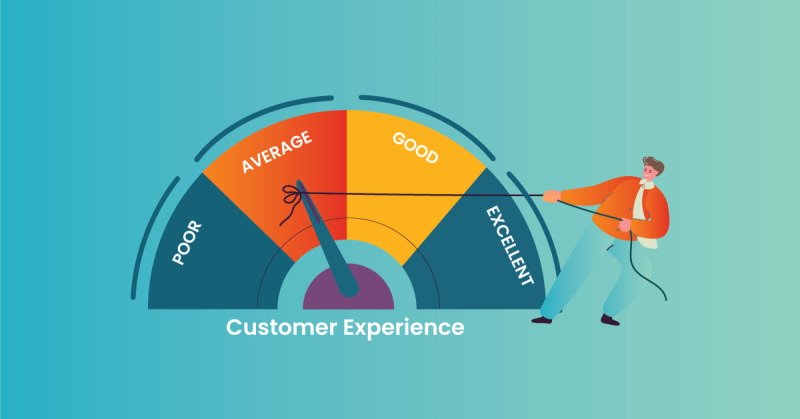Cutting costs with connectivity: enhancing business efficiency by connecting your systems
By connecting digital platforms via Application Programming Interfaces (APIs), businesses can streamline operations, automate workflows, and unlock the full potential of their digital ecosystem.

In today’s fast-paced digital landscape, businesses rely on multiple systems and platforms to manage everything from customer interactions to internal workflows. As organizations adopt more specialized tools, the challenge becomes ensuring these systems communicate and work together efficiently.
You certainly don't want to enter the same data twice in two separate systems: that is completely pointless and an integral waste of time
This is where API integration comes into play. By connecting digital platforms via Application Programming Interfaces (APIs), businesses can streamline operations, automate workflows, and unlock the full potential of their digital ecosystem.
In this article, we’ll explore the major advantages of connecting systems through APIs and why this integration is cost saving and critical for modern businesses looking to scale and succeed.
What is an API?
An API, or Application Programming Interface, is a set of rules and protocols that allow different software platforms to communicate with one another. It defines how requests are made and how data is shared between systems, enabling applications to "talk" to each other without human intervention. APIs power everything from integrating CRM systems with ERP systems or customer portals. Essentially, APIs act as bridges between disparate systems.
The advantages of API integration between digital platforms
1. Seamless Data Sharing and Accessibility
APIs allow digital platforms to exchange data in real time, ensuring that information remains consistent across all connected systems. For example, when a customer updates their contact details in a customer portal, APIs can instantly push that updated information to a CRM system where internal sales works with. This eliminates the need for manual data entry and reduces the risk of human error. Additionally, employees across departments can access up-to-date information from any connected system, leading to better decision-making and more efficient workflows.
2. Improved Efficiency Through Automation
API integration automates repetitive tasks and processes that would otherwise require manual (human) intervention. For instance, e-commerce platforms can automatically update inventory levels across systems after a sale and synchronize payment records with accounting software. This not only saves time but also ensures that the business operates efficiently and consistently. With automation in place, businesses can reduce costs and free up employees to focus on higher-value tasks.
3. Enhanced Customer Experience
With connected systems, businesses can offer a more seamless and personalized customer experience. For example, if an e-commerce platform is integrated with a shipping provider via API, customers can receive real-time updates on their order status without requiring manual intervention from the business and improving engagement and satisfaction.
4. Scalability and Flexibility
APIs make it easier for businesses to scale without the need for additional investments. As companies grow and adopt new technologies or platforms, API integration ensures that these systems can be easily connected to the existing ecosystem. Whether it's incorporating new payment gateways, marketing tools, or customer service portals, APIs provide the flexibility to adapt to changing business needs without overhauling the entire infrastructure.
5. Cost Savings
Building custom integrations from scratch for every new platform is both time-consuming and expensive. By using APIs, businesses can leverage pre-built solutions, significantly reducing the costs associated with development and maintenance. APIs allow companies to tap into existing systems and services rather than reinventing the wheel, leading to faster deployment and reduced operational costs.
We develop a central system that controls all communication between the different platforms: the integration middleware. After the initial cost, connecting additional systems is a much lower cost.
6. Better Insights and Reporting
API integrations enable the flow of data between platforms, providing businesses with a comprehensive view of their operations. Integrating sales, marketing, and customer service platforms allows companies to aggregate data from multiple sources, offering deeper insights into customer behavior and market trends.
This holistic view of data is critical for making informed, data-driven decisions that drive business growth.
The SEVENDAYS integration middleware takes care of the data aggregation and not only brings together data from different systems, but can also apply business logic for transformations of the data and can add a access permissions layer if needed.
7. Real-Time Communication
Real-time data sharing via APIs ensures that systems are always up-to-date. In industries like finance, healthcare, and logistics, where real-time information is essential, APIs ensure that systems communicate efficiently. For example, financial platforms can synchronize transaction data with accounting software in real time, eliminating delays and potential discrepancies.
8. Security and Compliance
Many APIs come with built-in security features such as encryption, authentication, and access controls, ensuring that only authorized systems and users can access sensitive data. By centralizing data flow through APIs, businesses can also monitor and enforce compliance more effectively. This is especially important in industries with strict regulatory requirements, like healthcare and finance, where data security is paramount.
Our SEVENDAYS integration middleware
We are dedicated integration specialists that have a lot of experience in connecting systems to each other.
We can connect with every system, but we already connected the following platforms:
HubSpot, Salesforce, Campaign Monitor, Mautic
Stripe, Mollie, MultiSafepay
One Signal, Twilio
Wise
Google Cloud (Maps API)
Teamleader, Robaws, Coachview, Billit, Buttons For Cleaners
Microsoft Dynamics 365 Business Central
Microsoft Dynamics NAV (Navision)
…
Our SEVENDAYS integration middleware has the following strengts:
Play a central role in the sync process
Disable point to point connections
Manage authentication, business logic
Dispatch, queue, throttle api connections
Manage high data load, scalable
Add flexibility in future connections to other systems
We provide an automated test setup for reviewing and validating the correct operation in the different scenarios. We can also scale-up the Queue infrastructure setup with multiple workers + supervisor for realtime handling of the queue.
Summary: The Key to a Connected Digital Ecosystem
In an increasingly interconnected world, API integration has become essential for businesses looking to optimize their digital ecosystems. The ability to connect platforms seamlessly offers numerous benefits, from operational efficiency and automation to improved customer experiences and data-driven insights. APIs not only allow businesses to scale and innovate but also reduce the complexity and cost of managing multiple systems.
As companies continue to adopt more specialized tools and technologies, API integration is the key to ensuring these systems work harmoniously together, empowering organizations to stay competitive, agile, and responsive in today’s dynamic market. In short, APIs are the backbone of modern digital connectivity, driving the innovation and efficiency that businesses need to thrive.
By leveraging the power of APIs, businesses can unlock new opportunities, streamline operations, save money and deliver exceptional value to both their customers and employees.






